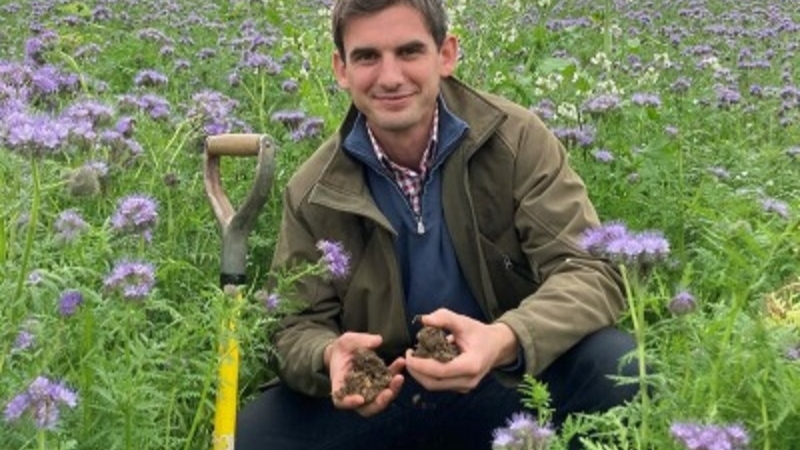A catchment source manager at Wessex Water is heading overseas after landing a coveted Nuffield Farming Scholarship. Ben Hunt, from Dorset, is one of only 18 people to be awarded the scholarship, which aims to bring positive change to agriculture through the development of its future leaders.
The initiative provides an opportunity to travel abroad to learn best practice from global experts, and past scholars have pioneered change and become industry leaders.
Ben works in Wessex Water’s catchment services team and liaises with farmers in the company’s drinking water catchments, offering advice and incentives where appropriate to help protect and improve water quality.
The team’s goal is to address the root cause of quality issues at source, providing a longer-term solution to water quality issues. This will ultimately avoid the need to build end-of-pipe water treatment assets, which are carbon intensive and expensive.
Ben said: “Completing a Nuffield Scholarship has been a longstanding ambition of mine for many years and I appreciate what an amazing opportunity I have in front of me.
“I’m on a mission to help farmers accelerate the adoption of carbon farming, in order to improve farm resilience to climate change while also improving water quality. I want to understand the attitudes of farmers and utility companies towards carbon farming and soil carbon markets, and what the current barriers to adoption are.
“My aim is to undertake a global assessment of soil carbon markets, and other business models, which have potential to incentivise the adoption of carbon farming.”
Corporations have a requirement to offset unavoidable emissions to achieve their net zero goals, and Ben believes the soil inside Wessex Water’s catchments may have the potential to be a carbon sink.
“This creates an opportunity to direct more finance through the carbon market into catchments to financially enable farmers to implement more sustainable practices which sequester carbon and build healthier soils,” he said.
“Doing so could yield productivity benefits for farmers and deliver co-benefits to society, such as improved water quality among other things.
“Throughout 2022 and early 2023 I plan to travel to parts of Europe, India and the US. I hope to engage with stakeholders that are involved in soil carbon markets to learn how they are making it a success and navigating some of the challenges and avoiding ‘greenwash’.
“I’d also like to visit examples of ‘regrenpreneurship’, where added value markets are being created for regenerative products. This creates value for the farmers and therefore incentivises carbon farming practices, while delivering environmental improvements.”



